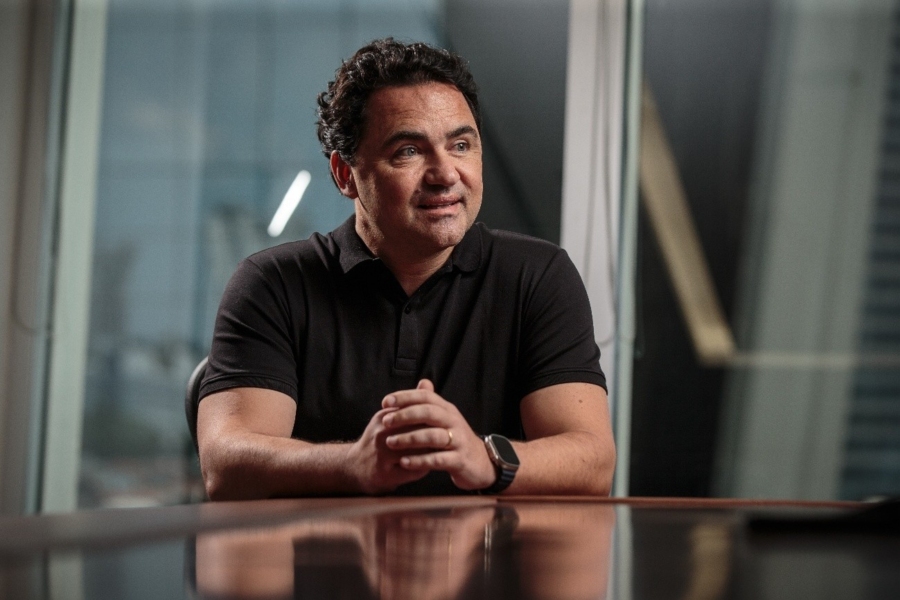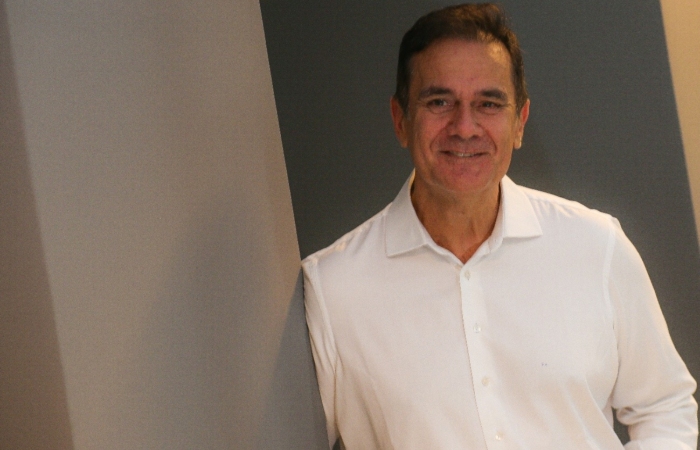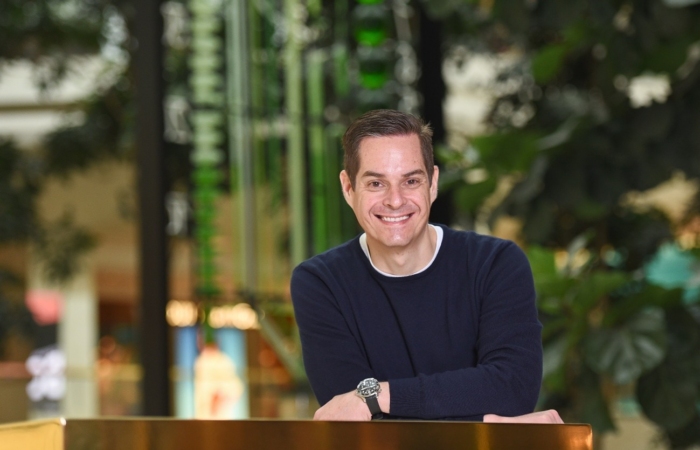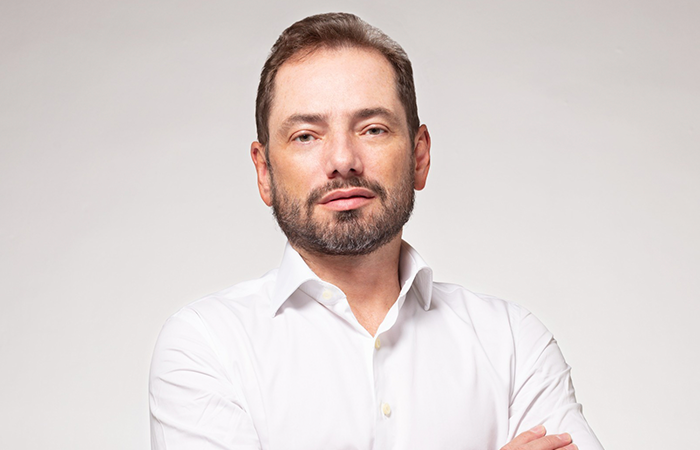PEOPLE AT THE HEART OF THE STRATEGY

In the second interview in the series that seeks to delve deeper into companies' perspectives on human resources management and the impact on reputation and business strategy, Reputation Feed spoke with Ricardo Burgos, Vice President of People and Security at Amil Group.
ANDAmong its challenges is the consolidation of Amil's change management, which underwent a change in command and organizational restructuring last year. The healthcare ecosystem, which integrates the operation of medical and dental plans and its own healthcare network of hospitals and health centers, was purchased by businessman José Seripieri Júnior, at the end of 2023, from the North American company UnitedHealth Group (UHG), where Burgos already held a seat in the high command. He is one of the only leaders who remained in the new administration.
COMPANY PROFILE
- Sector: Supplementary Health
- Foundation: 1978
- Performance: National
- Contributors: more than 33 thousand
- Clients: about 5.2 million beneficiaries
- Total Care Hospitals: 19
- Net Result/2024: R$ 619.8 million
Read the main excerpts from the conversation below.
sANK Reputation wave pointed out that the number 1 priority for senior leadership in 2025 is related to people development, talent attraction and retention, and succession. What is your assessment of this result?
Human capital is the most valuable thing an organization can have. Today, there are a number of challenges in management, such as the post-pandemic work model and mental health, which has been affected, and competition for talent. The human aspect, not only in terms of attraction, retention and, consequently, development, is a very relevant focus for the HR area, for the entire organization and for the C-Level of companies. The result confirms my thinking when I analyze our management, which has more than 33 thousand employees under the CLT, but with an ecosystem that reaches more than 100 thousand people, considering temporary workers, third parties, doctors and legal professionals.
How is the people front considered for the business?
We went through a major transition of control early last year. The controlling company, UnitedHealth Group (UHG), left, and the company became Brazilian again. It took us some time to establish the new mission and values, and everything starts with them. The company has to understand its purpose. In our case, it is to care. And the new values (define) the way we deliver care. Then, yes, it is possible to bring the corporate strategy to support the business, because the people agenda is part of the company's strategic planning.

“We have well-defined policies, expectations of conduct, of attitude, because this impacts our reputation and the way we deliver care. It is not an easy journey in a giant organization, but we work to have the mental model of attitude connected to the company's expectations.”
How is this process being done?
We recently finalized the roadmap for the entire company. We connected people across Brazil to talk about the performance cycle, which aligns the expectations for delivering the strategic planning goals. We discussed the closing of the 2024 cycle and the schedule for 2025, including introducing a new competency model, which has four dimensions. From leading oneself and teams to more comprehensive leadership. We presented it to the entire company, and we are already on this journey. It is an agenda with enormous relevance in the organization.
What is the role of people in this journey of building Amil's reputation, especially now that the company has a new controller and is being restructured on two new fronts?
Our slogan is people at the center of everything. So much so that the first area of competence is taking care of oneself. If we are not well, we cannot take care of our teams, clients, patients. The company is a health ecosystem. The importance of the employee and how they deliver care is fundamental (for reputation). It is a very present agenda with indicators. Last year, we lost a little, but now we are resuming the experience survey, engagement by areas. In the North American management, we had this very strong and, now, we are implementing it again, to keep this pulse, the organization very alive.
In practice, how does the company work on the reputation journey integrated with people management?
For example, we have a very robust employee support program that seeks to provide support in all aspects, financial, legal, psychological and spiritual. We look at human beings in a more holistic way. We have well-defined policies, expectations of conduct and attitude, because this impacts our reputation and the way we deliver care. It is not an easy journey in a giant organization. Obviously, we will have some moments of inappropriate actions. It happens in any company. But we work very hard to avoid this and to truly have a mental model of attitude that is always connected to the company's expectations.

“What is the result of a company’s brand? It is the result of the daily behavior of all of us, we represent the brand.
The way we behave, how we work and deliver our mission will have an impact on the brand. There is no point in doing incredible marketing work if your attitude does not adhere to the company's values, mission and expectations of behavior.”
The healthcare sector is exposed to numerous reputational risks, such as those related to privacy and data security, ethics and compliance, fraud and quality of services provided. How can people management help to avoid these risks and what can the company do in this regard?
Without a shadow of a doubt, when you think about risk in the healthcare sector, you have risks of all kinds. From the confidentiality of information, to the breach of the LGPD (General Data Protection Law) in relation to employees, patients, whether in the operator, in hospitals, in the healthcare network. There are huge reimbursement frauds. There are many offenders that, obviously, a people culture, as a whole, is not enough to prevent. You need a very strong compliance program, a robust supply program, very close and active management. And you need a lot of retraining of your staff, because, like any large company, it has turnover. Ours is actually small for the sector, 1,70%, per month, but, every month, 500, 600 employees join the organization. We also seek a culture of proactivity in reporting errors.
What is the impact of this error reporting process and how is its evolution measured?
If there is an error or a non-compliant act, the idea is not to punish it, but to report it so that it can be avoided in a similar situation. This culture of not being afraid and reporting is essential so that we can act, mitigate the consequences and prevent similar events from happening again. We still have a long way to go on this journey, but the healthcare indicators show a growing indicator of proactive reporting by employees of non-compliant acts, and I see a scenario of positive change in this context and progress in the area of transparency.

“Which functions will cease to exist (with technological transformation)? We don’t have that information. But the human factor will continue to be fundamental.”
How do you assess the stage of AI and digital transformation in the company from the perspective of people management? Are there any barriers to adoption that could harm productivity and company culture?
I try to alleviate people's anxiety about digital transformation, because we've already been experiencing this movement. It's a blue ocean, there's a lot we don't know yet, but knowing how to deal with it is important. Bringing it into the context of the Amil group, there's a lot that's new. In terms of combating fraud, from access to healthcare, for example, there's biometrics, facial recognition, tokens. In hospitals, there's robotics, surgeries are happening in a much safer way. Another question that could arise: which functions will no longer exist (with technological transformation)? We do not have this information. But the human factor will continue to be fundamental. In general, the process is necessary even to maintain the company in the segment.
Employee behavior on social media can be an additional component of reputational risk for companies. How does the company manage risk in this regard? Has there been any major reputational crisis resulting from employee statements on social media?
Risk management is well done. We have a highly competent communications team that does a good job of monitoring and preparing leaders for positioning. We have a clear policy that is reviewed annually by all employees. It is part of the integration of what can, should, and cannot be done by employees on behalf of the company. Does this mean that there are no smaller-scale events? Yes, but we have a good process in place.
How to maintain a unified culture in such a large and complex company that is still undergoing change management?
It's a huge challenge. I was part of the North American management team, I was one of the few leaders who stayed at the company, and there are several contexts to be analyzed. The healthcare sector is tense, the day-to-day work is difficult. In addition, the company itself has undergone many governance changes. It's a 46-year history, the company has been owned by one owner, there have been many acquisitions, integration of operators and hospitals, of all sizes. We have areas that are not harmonized to this day. To understand the culture, we have to understand this entire journey. What gives me great confidence is that the mission, values, strategic planning, and programs that consolidate this journey are bringing about a better and greater harmonization of this diversity. Today, I see greater adherence than we have had in my last six years here.
Christianne Schmitt is editor of the Reputation Feed
Christianne.schmitt@ankreputation.com.br
Next interview in the series:
- Patricia Pugas, Executive Director of People Management Magazine Luiza
- And click to read or revisit, in the series People at the center of management, the interview with Márcia Costa, VP of People Management at Aegea



